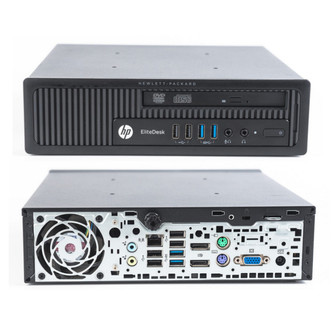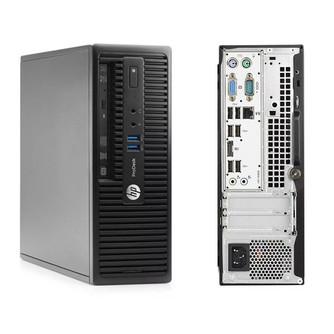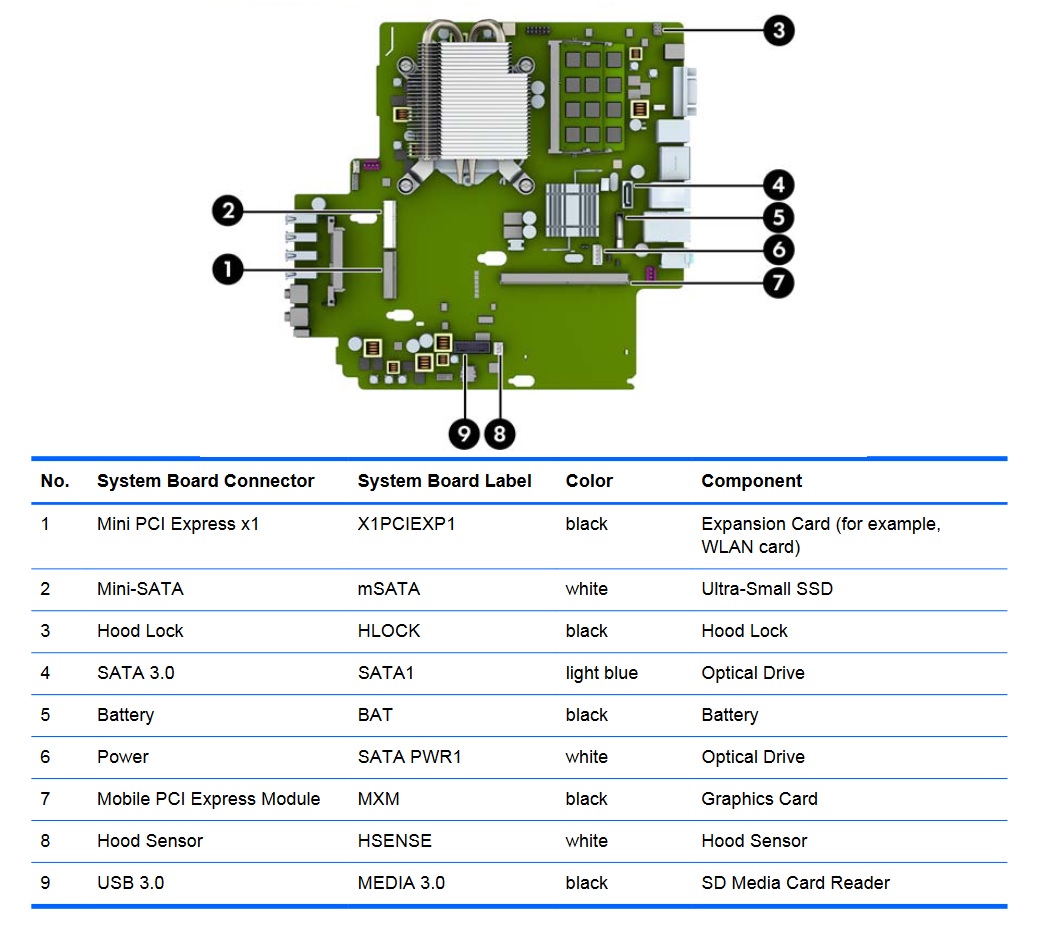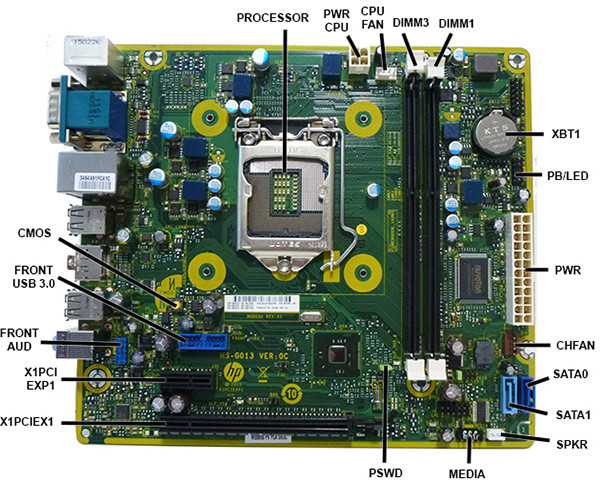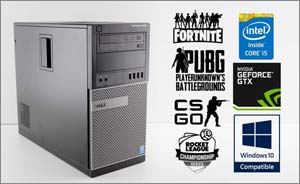HP EliteDesk 800 G1 USDT vs. HP ProDesk 400 G2.5 SFF
Comparison and Differences
Differences between HP EliteDesk 800 G1 USDT and HP ProDesk 400 G2.5 SFF
If you are looking for a more modern desktop, then you should go with the HP ProDesk 400 G2.5 SFF which was released in 2014. The HP EliteDesk 800 G1 USDT is older and entered production in 2013.
Both models have the same form factor, meaning reoughtly they have the same phiysical size and form.
Processor
The two models have the same generation of Intel processors. We think that the 4 generation of Intel Processors have enough power to execute all of the home and office tasks that most people will care to do.
Memory
The HP EliteDesk 800 G1 USDT has 4 RAM slots while the HP ProDesk 400 G2.5 SFF has only 2 slot(s). This is not something to worry about. Just make sure you take it into consideration when planning how much RAM you are going to use.
None of the desktops has an advantage when it comes to the speed of the RAM being used. Both models support RAM speeds of up to 1600. Additionally, if you will be needing a lot of RAM, better go for the HP EliteDesk 800 G1 USDT as it has the ability to run 32 GB of RAM. The HP ProDesk 400 G2.5 SFF can do a bit less at max 16 GB. Most of the times, this should be sufficient for the majority of users.
Ports
In total the HP EliteDesk 800 G1 USDT has 10 USB ports. The HP ProDesk 400 G2.5 SFF is inferior in this regard and packs 8 USB ports. In any case, if you miss USB ports, you can always purchase a USB hub. None of the desktop models has a USB 3.1 port (10Gb/s), so if you need a fast connection to your peripherals, like external Solid State Drive, you will need to look elsewhere.
DisplayPort is crucial for any desktop machine. It is good to see that both models are featuring DisplayPorts. However, the HP EliteDesk 800 G1 USDT comes with 2 ports, while the HP ProDesk 400 G2.5 SFF has only 1. If you are planning to use multiple monitors, the HP EliteDesk 800 G1 USDT is the better choice.
None of the models has an HDMI port. If your monitor supports only the HDMI interface, you will need to buy an adapter. Such adapters are cheap so nothing to worry about.
SATA ports are placed on the system board and it is where you connect your HDD, SSD and Optical Disk Drives. More SATA slots will allow you to have more drives running at the same time. In this regard the HP ProDesk 400 G2.5 SFF is better equipped as it comes with 3 SATA slot(s), while the HP EliteDesk 800 G1 USDT has 1 slot(s).
If you want the fastest transfer speeds for your SSD, an M.2 interface is crucial. Thus, if the M.2 SSD slot is a mandatory requirement for you, go with the HP EliteDesk 800 G1 USDT. Sadly, the HP ProDesk 400 G2.5 SFF has no such slot, and you will be forced to use the SATA interface instead.
Make sure that the available M.2 slot supports the PCIe (also called NVMe) interface. This is important as there are M.2 slots which support only the inferior SATA III interface. For comparison, the SATA III interface has max speeds of 6Gb/s, while the PCIe 3.0 x4 will support speeds up to 32Gb/s!
Power Supply
Looking at the Power Supply Unit (PSU) of the two models we don't see any differences. For either of them you get a maximum power of 180 Watts. However be careful, many models have more than one power supply option. When buying your computer, it is a good idea to get a version with the most powerful PSU. This will potentially allow you to upgrade to a more powerful GPU for example.

